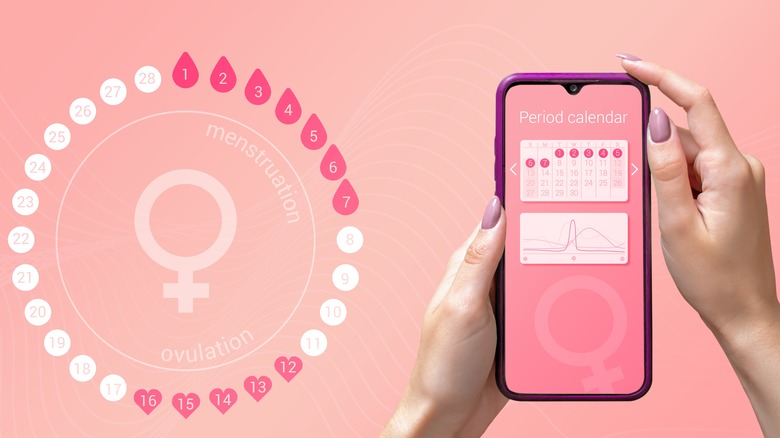Why You Might Have Two Periods In One Month
Most women depend on their menstrual cycle being a consistent and reliable 28 days. In fact, the thought of having to experience the pain, irritability, and inconvenience of a period more frequently than that can have some women seeking out ways to naturally delay their period each month. However, for some women, experiencing more than one period every month is not only a regular but expected occurrence.
The Office on Women's Health explains that for most women, the menstrual cycle is between 24 and 38 days. However, this is an average number and some women may experience shorter or longer cycles. The menstrual cycle begins on the first day of a woman's period. The period itself is the process of the body eliminating the accumulated lining of the uterus when pregnancy is not achieved within the monthly cycle. It is at this point that the body sheds the uterine lining through the vagina, which is what most women recognize as getting their period (via Mayo Clinic). Each period typically lasts four to five days (via Health).
For many women, the menstrual cycle works out so that only one period is experienced each month. External factors like stress can cause the arrival of an early period. However, some women may also experience two periods in a single month-long timeframe.
What can cause two periods?
What can cause an individual to have two periods in one month? There are actually a number of reasons that can cause this experience.
The first thing to note is that on its own, the presence of a second period is not necessarily a cause for concern. In fact, Health states that many women will experience episodes of irregularity in their monthly cycles off and on throughout their life. Factors like stress, diet, exercise, and simple timing can cause your period to seem a little off. For example, if one month your period occurs at the beginning of the month and then it shows up again at the end, this could just be due to the length of the month or a one-time irregularity.
While the menstrual cycle length is an average, there's a good margin of room for individuality when it comes to how frequently an individual can experience a period. Factors like birth control, uterine fibroids, and other illnesses can offset your normal menstrual cycle from the average, according to Women's Health. Irregular bleeding can also sometimes point to a potential pregnancy.
However, issues with your thyroid or uterine cancer can also cause multiple or longer period cycles. If you are experiencing two periods each month for multiple months consecutively, your doctor can help you to determine the cause.


